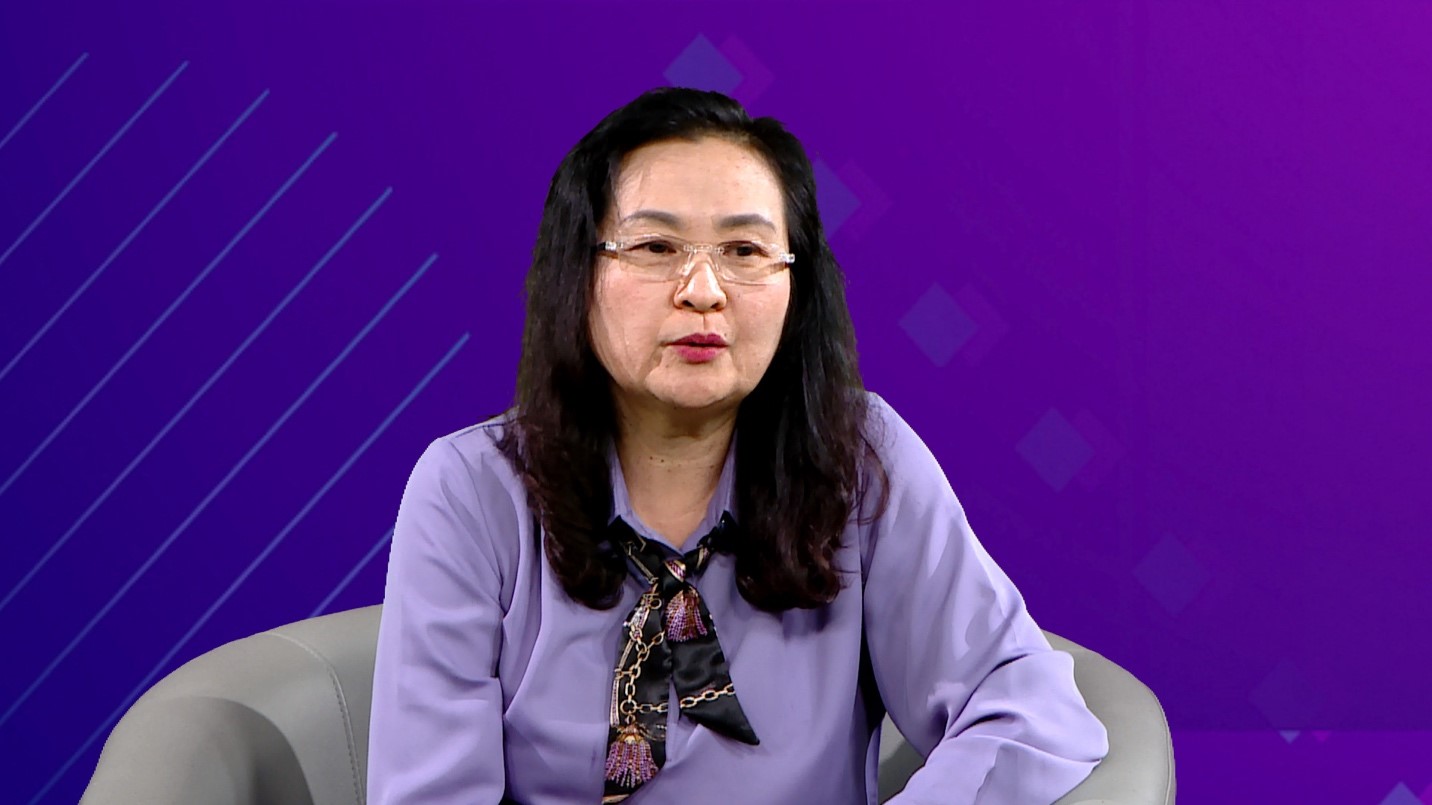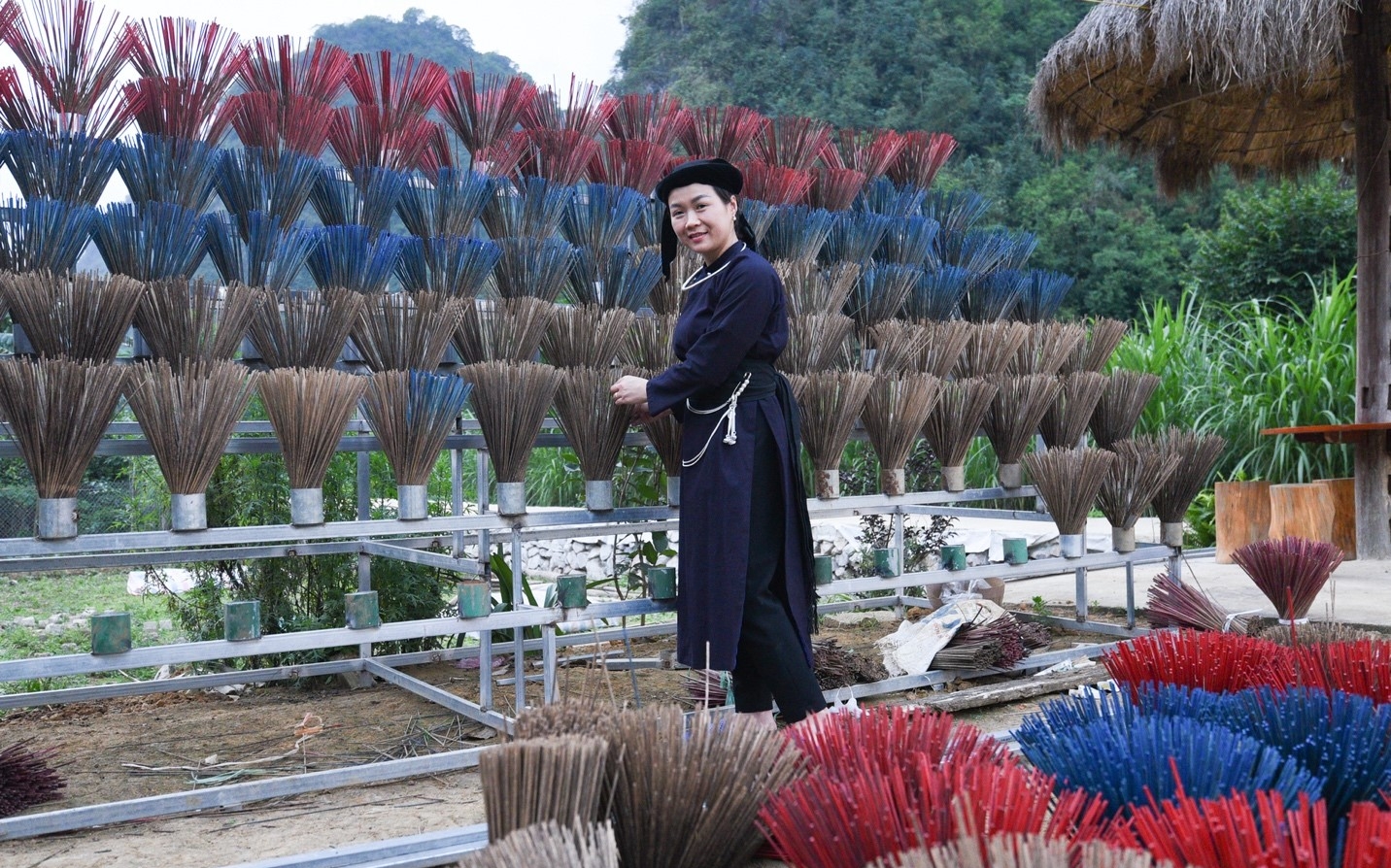May 29, 2025 | 22:46 GMT +7
May 29, 2025 | 22:46 GMT +7
Hotline: 0913.378.918
May 29, 2025 | 22:46 GMT +7
Hotline: 0913.378.918

Mrs. Be Hong Van pointed out 5 factors that contribute to creating brands for products with national cultural values.
Recently, many businesses and social organizations have coordinated with localities to organize production and business activities to create products associated with the cultural values of ethnic minorities and mountainous areas. From there, unique and unique products are formed for people.
Some local specialty products have become strengths, consumed in domestic distribution channels and exported to foreign markets.
Ms. Be Hong Van, Deputy Director of the Department of Ethnic Policy, Committee for Ethnic Minorities, acknowledged that five critical factors contribute to exploiting cultural values in the product development of ethnic minority people and mountainous areas, including Internal force, Technical access, Harnessing local knowledge through product development, Connectivity, and Cultural traditions.
Among these, Mrs. Van emphasized the role of promoting cultural traditions. Currently, this activity is manifesting itself in many aspects. Either promote traditional culture through community tourism development or traditional culture through marketing.
In Da Bac district, Hoa Binh province, and Van Ho district, Son La province, people have demonstrated their ability to exploit cultural resources, combining providing experiences in stilt houses and producing specialty local agricultural products, exploring cuisine and living customs.
Simultaneously, typical, highly localized products have appeared, such as "Thai ethnic Arabica coffee" in Son La or Ngu Sac To Muoi Vermicelli Cooperative in Cao Bang.
"Ara Tay Coffee Cooperative used a cultural story for this product. They created a photo book about harvesting and processing fresh coffee beans while integrating Thai people's cultural values," Mrs. Van shared.

Phia Thap incense village of the Nung An people in Cao Bang. Photo: Tung Dinh.
From the 5 factors mentioned above, leaders of the Department of Ethnic Policy proposed 7 solutions to exploit cultural values and develop products in ethnic minority and mountainous areas. This includes creating an environment to connect partners participating in value chain links, including government agencies. In addition, businesses in the area that have successfully deployed will act as technical support and create a driving force for the entire chain.
"At the central level, we must include elements of knowledge, traditional culture, and community connection in the criteria to select projects to support value chain development in mountainous areas," Deputy Director Van expressed.
Discussing cultural factors of ethnic minorities, Dr. Chu Xuan Giao, Institute of Cultural Research, Vietnam Academy of Social Sciences, said that people also need to bring goods to the national market or even further to the world.
Taking the example of the Nung An people in Phuc Sen, Cao Bang province, Mr. Giao listed three typical products: Phuc Sen knives, Phia Thap incense, and paper. "They are very proactive, knowing what is good for development. I appreciate the efforts of the people and see that this is a promising period for bringing their products to the domestic market as well as internationally".
Previously, people depended on markets in the highlands, following the rhythm of life of forging, rice, corn, etc. Usually, markets took place once a week. Goods are consumed in small traders' markets or exchanged by border residents.
In the age of technology 4.0, Mr. Giao called on the government and businesses to invest in development for people in-depth over a long period. Also, contemplation is needed to exploit cultural factors in people's product development.

Mrs. Tran Tuyet Lan said that people must develop group management skills.
Agreeing with this opinion, Mrs. Tran Tuyet Lan, Director of Craft Link Social Enterprise Joint Stock Company, believes that ethnic minorities need two skills to develop cultural products sustainably. That is team management and packaging and label design.
Through 27 years of supporting ethnic minority groups, Mrs. Lan concluded that people needed to build and develop their groups after the projects ended. "Craft Link cannot be there forever to help them forever," she wondered.
According to Mrs. Lan, each ethnic minority group has different traditional cultural identities, languages, and ways of expressing culture. Therefore, support projects need to develop a separate plan for each region.
Promoting products to the public also needs to be rich and lively. Recently, Craft Link has supported people in rewriting stories and converting them into clips or distributing introductory leaflets so they can promote themselves online on platforms like Facebook and YouTube.
"Every year, we also organize a traditional crafts fair and invite groups to participate so that any group can directly interact with the public and customers. Through that process, they not only introduce they can learn about traditional culture but also learn more about the needs and trends of the market. These are extremely practical marketing lessons," she thought.
In 2023, Mrs. Lan's unit coordinates with relevant parties to invite ethnic minority groups to Hanoi to demonstrate traditional crafts. Before learning about the products, consumers will experience these activities and interact with artisans.
Translated by Tuan Huy

(VAN) Ms. Nguyen Thi Dung, Deputy Director of Ngoc Hoang Cooperative, shared about the journey of bringing dragon fruit to Europe, achieving annual revenues in the billions of VND.

(VAN) Bamboo products from Thang Tho Bamboo Cooperative have reached many countries around the world, while also creating jobs for local workers.

(VAN) The Management Board of Con Dao National Park reported that a green sea turtle, tagged in the Philippines, has traveled thousands of kilometers to lay 84 eggs on Bay Canh Islet.

(VAN) Green technology is paving a new path for sustainable aquaculture in the Mekong Delta in particular and across the country in general, helping reduce emissions and adapt to climate change.

(VAN) On May 27, La French Tech Vietnam (the French startup and innovation community in Vietnam) held the French Tech Summit Vietnam 2025.
/2025/05/27/4731-2-223159_980.jpg)
(VAN) No votive paper, no styrofoam, no plastic bags, no plastic bottles, and no single-use plastic trays are the key rules tourists should keep in mind when visiting Con Dao.

(VAN) In the fight against plastic pollution, Vietnam has been demonstrating a proactive, pioneering, and active role in addressing the greatest environmental challenge today.